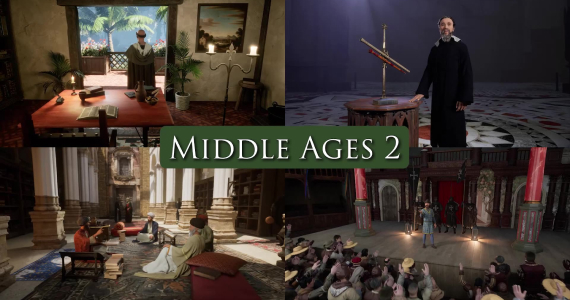
This course surveys the transformative political thought of the early Renaissance period, together with the celestial revelations of astronomy, methodological advancements in scientific inquiry, and the profound literary contributions of Shakespeare, providing a holistic view of the pivotal intellectual and cultural shifts that defined the transition from the medieval to the modern world. Students begin by examining the critical contributions of Machiavelli, More, de Las Casas, and Luther to the evolution of political, economic, and religious thought during the Renaissance, including such elements as the critique of colonial exploitation, the envisioning of utopian societies, and the religious reformations that challenged and altered the course of European history. Next students turn their eyes to the heavens and the transition from the Earth-centered Ptolemaic system to the heliocentric model proposed by Copernicus and further refined by the observational precision of Tycho Brahe, the mathematical insights of Kepler, and the telescopic discoveries of Galileo. The evolution of scientific thought and methodology are emphasized, as is their role in marking a pivotal shift in our understanding of the universe. This growing focus on observation and the scientific method is traced through the mathematical innovations of Al-Khwarizmi and Viete, into the philosophical and methodological contributions of Descartes, Bacon, and others. This course underscores the synergy between mathematical reasoning and empirical research, showcasing how these intellectual tools have collectively forged the path for scientific investigation and discovery. From science, the course turns to Shakespeare and his explorations of the complexities of human nature and the intricacies of social and political life. Collectively these texts bring students from the Renaissance to the dawn of the Enlightenment.
Ada Palmer - University of Chicago
Caroline Pennock - University of Sheffield, UK
Christine Helmer - Northwestern University
David Lantigua - University of Notre Dame
Erica Benner - University College London / Oxford University, UK
Jennifer McNutt - Wheaton College
Jenny Mann - New York University
Quentin Skinner - Cambridge University, UK
Alex Filippenko - University of California, Berkeley
Florence Hsia - Princeton University, University of Wisconsin, Madison
Giovanni Maccari - Independent Scholar, Italy
Mario Livio - Israeli Institute of Technology, Israel
Massimo Mazotti - University of California, Berkeley
Riccardo Strobino - Tufts University
S. James Gates Jr. - University of Maryland
Sara Seager - Massachusetts Institute of Technology
Selena Segato - Independent Scholar, Italy
Cord Whitaker - Wellesley College
Edward "Ned" Hall - Harvard University
Keith Devlin - Stanford University
Ayanna Thompson - Arizona State University
Dennis Britton - University of British Columbia, Canada
Michelle Ephraim - Worcester Polytechnic Institute
Paul Budra - Simon Fraser University, Canada
Ruben Espinosa - Arizona State University
Stephen Greenblatt - Harvard University
Yu Jin Ko - Wellesley College